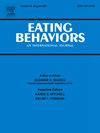食物成瘾与人格特质:相关研究的三水平元分析。
IF 2.6
3区 医学
Q2 PSYCHIATRY
引用次数: 0
摘要
背景:流行病学和临床研究表明,食物成瘾是一种与临床相关的现象。大量的研究调查了它与人格特质的关系。然而,缺乏对这些结果的系统概述和荟萃分析。方法:我们系统地检索了几个学术数据库中关于食物成瘾与人格特质之间关系的研究。对于每个人格特质,我们进行了一个三水平的荟萃分析,估计其与食物成瘾严重程度的关联强度。采用元回归对调节因子的作用进行检验。结果:筛选过程最终筛选出37项研究。大多数研究分别用冲动行为量表或气质和性格量表来考察冲动性或Cloninger维度。没有足够的观察结果来评估食物成瘾严重程度和一些人格特征之间的关系,比如那些由五因素模型测量的人格特征。观察到的最高效应大小将食物成瘾与低水平的自我指导(r = -0.26),高水平的负(r = 0.33)和正(r = 0.27)紧迫性以及注意冲动(r = 0.31)联系起来。年龄和性别显著地调节了一些效应量。结论:需要更多的研究来增加我们对食物成瘾严重程度和某些人格特征之间关系的了解。结果表明,食物成瘾可能与成瘾和饮食失调的人格特征(如伤害回避和冲动)有关,也揭示了其特异性(即与奖励依赖缺乏显著关联)。本文章由计算机程序翻译,如有差异,请以英文原文为准。
Food addiction and personality traits: A three-levels meta-analysis of correlational studies
Background
Epidemiological and clinical studies highlighted that food addiction is a clinically relevant phenomenon. A large number of studies investigated its link with personality traits. However, a systematic overview and a meta-analysis of these results is lacking.
Methods
We systematically searched for studies investigating the link between food addiction and personality traits on several academic databases. For each personality trait, we performed a three-level meta-analysis estimating the strength of its association with food addiction severity. The role of moderators was tested employing meta-regression.
Results
The screening process led to the selection of 37 studies. Most contributions investigate impulsivity or the Cloninger's dimensions with the Impulsive Behavior Scale or the Temperament and Character Inventory respectively. An insufficient number of observations were retrieved to evaluate the association between food addiction severity and some personality traits such as those measured by the five-factor model. The highest effect sizes observed linked food addiction to low levels of self-directedness (r = −0.26), to high levels of both negative (r = 0.33) and positive (r = 0.27) urgency and to attentional impulsiveness (r = 0.31). Age and gender significantly moderated some of the effect sizes.
Conclusions
More research is needed to increase our knowledge regarding the association between food addiction severity and some personality traits. Results suggested that food addiction may be associated to the same personality traits that characterized addictions and eating disorders (e.g. harm avoidance and impulsivity), also revealing its specificity (i.e. the lack of significant association with reward dependence).
求助全文
通过发布文献求助,成功后即可免费获取论文全文。
去求助
来源期刊

Eating behaviors
Multiple-
CiteScore
4.20
自引率
3.60%
发文量
65
审稿时长
60 days
期刊介绍:
Eating Behaviors is an international peer-reviewed scientific journal publishing human research on the etiology, prevention, and treatment of obesity, binge eating, and eating disorders in adults and children. Studies related to the promotion of healthy eating patterns to treat or prevent medical conditions (e.g., hypertension, diabetes mellitus, cancer) are also acceptable. Two types of manuscripts are encouraged: (1) Descriptive studies establishing functional relationships between eating behaviors and social, cognitive, environmental, attitudinal, emotional or biochemical factors; (2) Clinical outcome research evaluating the efficacy of prevention or treatment protocols.
 求助内容:
求助内容: 应助结果提醒方式:
应助结果提醒方式:


